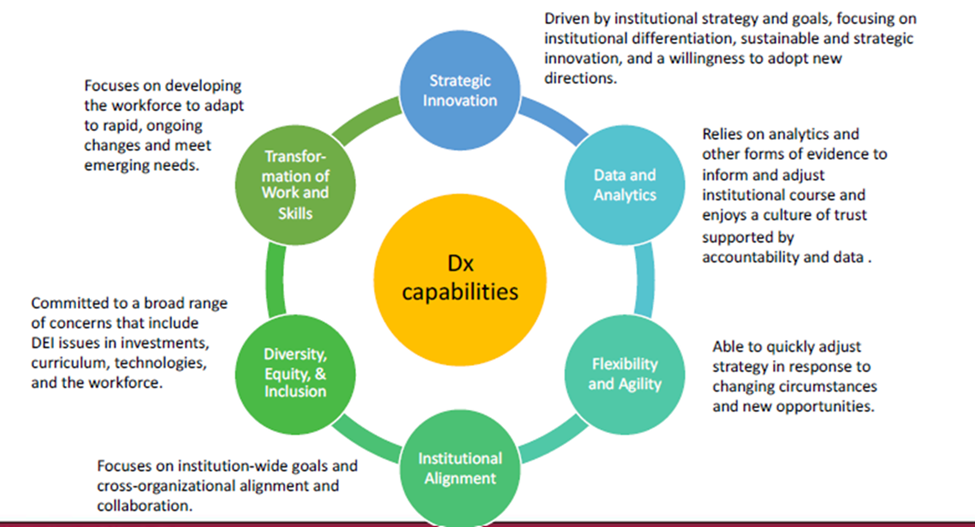
EDS Data: Transforming the Future of Information Management

In the digital age, the management and processing of information have become paramount for organizations across various industries. EDS data has emerged as a revolutionary cornerstone in this evolution, changing the way businesses handle their information. Founded by Ross Perot in the late 1960s, Electronic Data Systems (EDS) has played a crucial role in advancing computer data-processing systems and has significantly influenced the landscape of information management.
This article explores the rich history and transformative impact of EDS data within the realm of electronic data systems. From its inception to its strategic growth, EDS has laid the groundwork for modern data management practices, paving the way for future innovations. Highlighting key milestones, partnerships, and technological advancements, we will delve into how EDS has shaped the trajectory of information management and continues to influence the future of data processing.
- The Rise of Electronic Data Systems (EDS)
- Ross Perot: A Visionary Entrepreneur
- The Role of EDS in the Evolution of Data Processing
- Key Innovations in Information Management
- Strategic Partnerships and Growth Through the 1970s
- EDS's Impact on the Insurance Industry
- Going Public: A Turning Point for EDS
- Technological Advances in Data Management
- The Legacy of EDS in Today's Information Landscape
- Conclusion: Shaping the Future of Data Management
The Rise of Electronic Data Systems (EDS)
Electronic Data Systems (EDS) was born out of a vision to revolutionize the way businesses managed their data. Founded by Ross Perot in 1962, EDS initially focused on providing comprehensive data processing services to a variety of clients. With the advent of computers, Perot recognized the growing need for efficient data management solutions. This foresight laid the groundwork for what would become one of the largest and most successful firms in the data processing industry.
As the demand for more sophisticated data processing solutions increased, EDS swiftly adapted by expanding its services. The company began processing medical claims for major insurance companies, such as Blue Cross, which significantly contributed to its rapid growth. The effectiveness of these services not only showcased EDS's capabilities but also established it as a leader in information management.
Ross Perot: A Visionary Entrepreneur
Ross Perot's entrepreneurial spirit and innovative mindset were critical to the success of EDS. Born in 1930 in Texarkana, Texas, Perot's early career in the United States Navy and his subsequent work in sales laid the foundation for his business acumen. His ability to identify gaps in the market led him to establish EDS, where he sought to provide durable solutions to complex data management issues.
Perot's vision went beyond merely starting a business; he aimed to transform industries through technology. His commitment to high-quality service and attention to customer needs formed the cornerstone of EDS's business philosophy. This customer-centric approach not only fostered strong client relationships but also contributed to EDS's esteemed reputation in the data processing landscape.
The Role of EDS in the Evolution of Data Processing
EDS played a significant role in the evolution of data processing from manual systems to automated solutions. This shift not only improved efficiency but also allowed organizations to handle larger volumes of data with greater reliability. EDS capitalized on the transition to electronic data processing, offering integrated solutions that enhanced operations and reduced costs for clients.
The company's innovative prowess was evident through the development of sophisticated software systems and hardware solutions designed to meet the specific needs of various industries. By leveraging cutting-edge technology, EDS fulfilled its mission of transforming business operations through improved data management practices.
Key Innovations in Information Management
Throughout its history, EDS has introduced several key innovations that have set industry standards for information management. One of the most notable advancements was the automation of data entry and processing, significantly reducing manual labor and the potential for human error. This automation revolutionized how businesses managed data and established a new benchmark for efficiency.
Additionally, EDS developed pioneering software that enabled real-time processing and more robust analytics capabilities. These innovations empowered organizations to make data-driven decisions swiftly, enhancing their operational efficiency and strategic planning. The pioneering spirit of EDS fostered a culture of continuous improvement and technological advancement, ensuring its place as a leader in the data processing realm.
Strategic Partnerships and Growth Through the 1970s
The strategic partnerships that EDS established in the 1970s played a crucial role in the company's expansion. Collaborating with influential technology firms and industry leaders allowed EDS to enhance its service offerings and strengthen its foothold in the market. These alliances were beneficial, enabling the company to access advanced technologies and integrate them into its data management solutions.
Moreover, these partnerships facilitated EDS's entry into new markets and customer segments. The company not only grew in size but also in influence as it became a trusted provider of electronic data processing services. This period of growth solidified EDS's reputation as a vital player in the information management sector.
EDS's Impact on the Insurance Industry
One of EDS's most significant contributions was its impact on the insurance industry. The processing of medical claims for major insurance providers revolutionized operations, allowing for faster claim processing and improved customer service. EDS’s expertise in managing vast amounts of data set new standards for efficiency and accuracy in the insurance sector.
By streamlining workflows and implementing advanced technology, EDS enabled insurance companies to optimize their services and enhance their overall performance. This transformation not only improved operational efficiency but also fostered greater trust among clients and customers by minimizing errors and expediting claims processing.
Going Public: A Turning Point for EDS
In 1968, Ross Perot made the strategic decision to take EDS public. This pivotal moment marked a significant milestone in the company’s history, providing it with the resources needed for further expansion and innovation. The initial public offering (IPO) attracted considerable investor interest, reflecting confidence in the company's future potential in the data processing industry.
The influx of capital from the IPO allowed EDS to invest in research and development, paving the way for new technologies and services. This not only propelled its growth trajectory but also fortified its position as an industry leader in information management.
Technological Advances in Data Management
As technology continued to advance, EDS was at the forefront, adapting its services to meet the changing landscape of data management. The introduction of mainframe computers and later, personal computers, drastically altered the speed and capacity of data processing. EDS embraced these advancements, implementing systems that were not only faster but also more efficient and reliable.
Moreover, EDS was an early adopter of cloud computing, recognizing its potential to transform how data was stored and processed. By leveraging secure, scalable cloud solutions, EDS provided clients with enhanced flexibility and access to their data. This transition was instrumental in shaping modern information management practices and laid the groundwork for future technological reforms.
The Legacy of EDS in Today's Information Landscape
The legacy of EDS is evident in the contemporary information management landscape. Its pioneering efforts in the electronic data processing domain set the stage for many of the advanced technologies used today. Organizations have built upon EDS's foundational principles, utilizing robust data analytics and management systems that are critical for success in today’s data-driven world.
Moreover, the influence of EDS is felt across industries beyond insurance, as various sectors now rely on data-driven insights to guide strategic decisions. The company's emphasis on reliability, efficiency, and innovation continues to resonate within the realms of data processing and management, highlighting its enduring impact on the field.
Conclusion: Shaping the Future of Data Management
In conclusion, the journey of Electronic Data Systems (EDS) represents a profound transformation in information management that continues to shape the future of data processing. From its inception by Ross Perot to its strategic growth and innovative advancements, EDS has been a pivotal force in the industry. Today, as organizations confront a deluge of data from various sources, the lessons learned from the EDS story are more relevant than ever.
As we look ahead, the principles established by EDS—innovation, reliability, and a commitment to quality—will remain essential to navigating the complexities of modern data management. The evolution initiated by EDS data has undoubtedly set the stage for the future of information, and its legacy will inspire generations of data professionals to continue pushing the boundaries of what is possible in the realm of electronic data systems.
Did you find this article helpful? EDS Data: Transforming the Future of Information Management See more here Education.
Leave a Reply






Related posts